If you love rom-coms with the usual guilty pleasures — fake marriages, chaebol drama, and a heroine who will not be played — then Would You Marry Me? will feel like reheated candy. It leans hard into classic K-drama tropes. Yet somehow it also pokes fun at the oldest, skeeviest bits of those classics. The result? Comfortable, silly, and oddly modern.
TL;DR
- Classic Tropes, Modern Bite: Leans heavily into K-drama tropes (contract marriage, chaebol) but updates the jokes and power dynamics.
- Strong Leads: Me-ri (Jung So-min) has real agency and backbone; Woo-joo (Choi Woo-shik) is a decent, soft, and relatable chaebol.
- Self-Aware Humor: Winks at and refuses to romanticize the toxic, skeevy elements of older K-dramas.
- High Stakes & Chaos: Plot has real-world consequences (divorce, scams) and features a famously messy “cactus” first-meet.
- Verdict: Highly recommended for trope-friendly viewers who enjoy comfort, chemistry, and smart pacing.
Quick recap (no spoilers beyond Episodes 1–2)
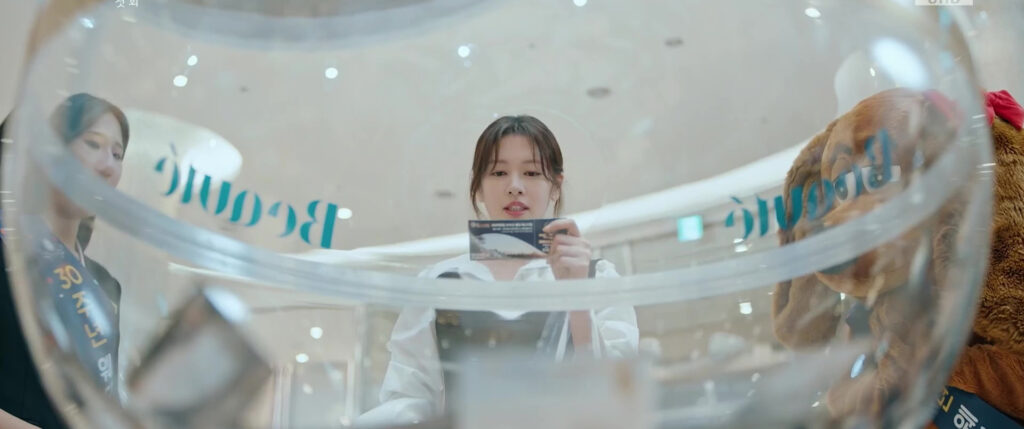
Me-ri (Jung So-min) is an ad designer with backbone. She’s dumped, legally married but separated, and suddenly homeless after a renter scam steals her deposit. Lucky break: she wins a luxury house in a contest meant only for married couples. Problem: the contest rules demand a married couple claim the prize together. Problem two: her registered husband is incommunicado. So she needs a stand-in. Enter Woo-joo (Choi Woo-shik) — a sweet, decent chaebol who shares the exact same name as her ex. Hilarity, accidental cactus injuries, and a very messy first meeting follow. Then the contract marriage trope kicks in and the main plot moves forward.
What the show is selling
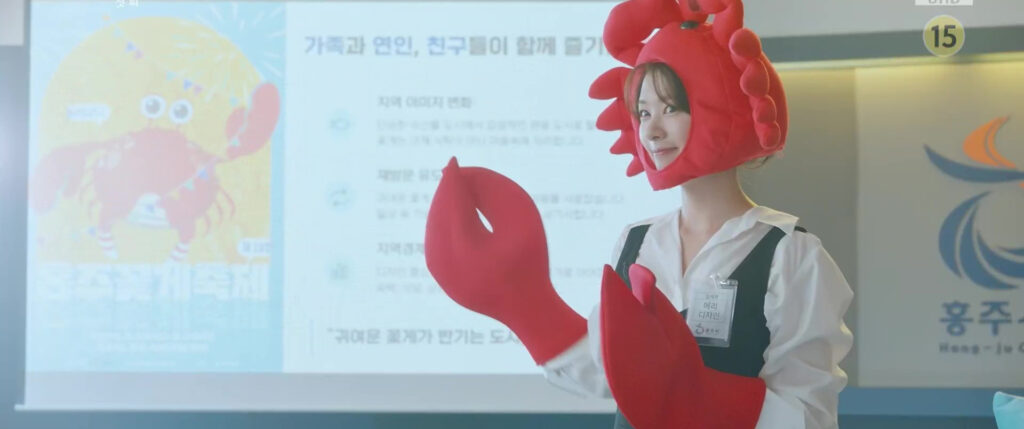
- Tropes: Contract marriage, drunk first-meet, chaebol vs. ordinary life, childhood connections, villainous relatives.
- Tone: Bright, slightly nostalgic, and self-aware. It flirts with old-school K-drama energy but updates the jokes and the power dynamics enough to avoid feeling gross.
- Vibe: Mid-2000s rom-com candy, but with a modern bite.
The leads: why they work
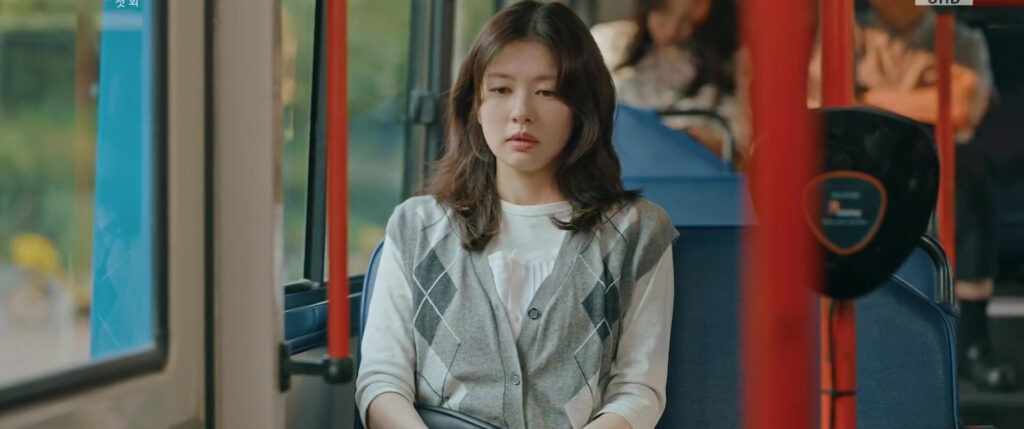
Me-ri is one of the better “everywoman” leads. She’s competent at work, she’s honest with herself, and she has real agency. When she calls out sexual harassment during a pitch meeting, it lands. It’s not melodrama for the sake of it — it’s a character moment that tells you she won’t be gaslit.
Woo-joo is the softer chaebol: not a perfect golden heir, more of a decent, slightly bewildered guy who actually checks on people. His kindness is believable because it’s quiet. He’s not meant to be a flawless alpha — and that’s refreshing. The casting plays: he looks relatable, not a manufactured idol. That helps the chemistry be less fantasy and more human.
The wrongs it gets right
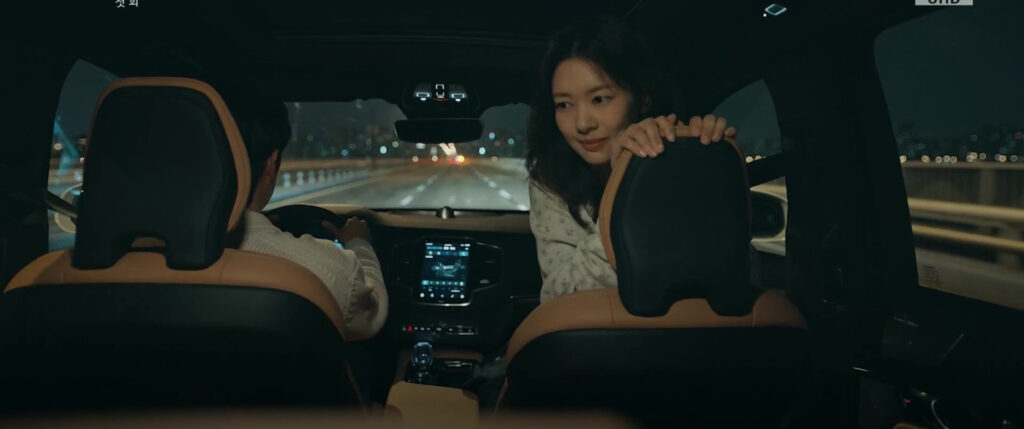
- Calling out older toxicity. The show winks at cringe tropes from Full House era K-dramas and refuses to romanticize harassment or gross persistence. That self-awareness improves the emotional baseline.
- Real consequences. The fact that Me-ri has to actually divorce, deal with scams, and fight for her livelihood gives the plot stakes beyond “will they kiss?”
- Funny, believable first meet. Drunk mixups can be tiresome, but this one is staged so well it’s physical comedy rather than humiliation porn. Yes, she sits on a cactus. Yes, it’s as messy and embarrassing as it sounds.
The weaknesses (so you don’t buy the whole bakery)
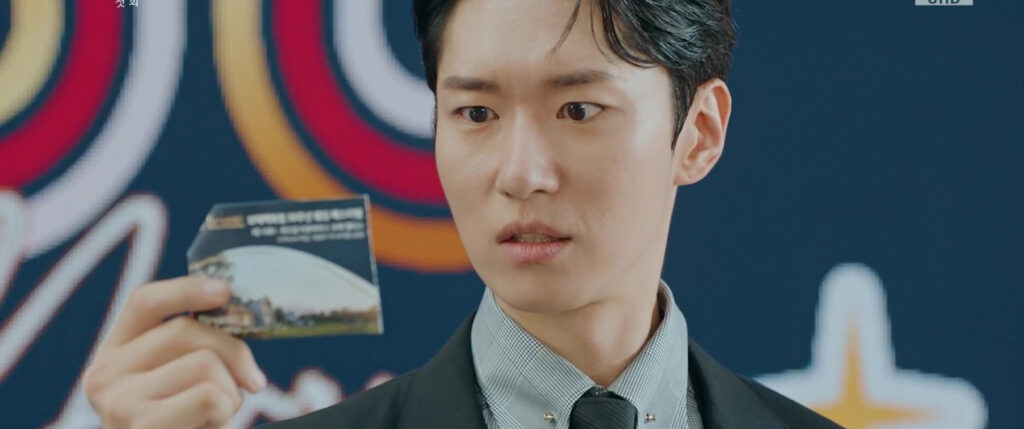
- Side characters are thin. A lot of the supporting cast exist to be “the villain” or “the obstacle.” They’re fine as flavor, but don’t expect deep B-plots any time soon.
- Some plot conveniences. The identical-name setup is cute and convenient. Expect other coincidences to glide in when the plot needs them.
- Predictable beats. If you’ve binged a handful of rom-com K-dramas, you’ll see most twists coming. That’s not always bad — comfort is a genre tool — but don’t expect shocking originality.
Style and pacing
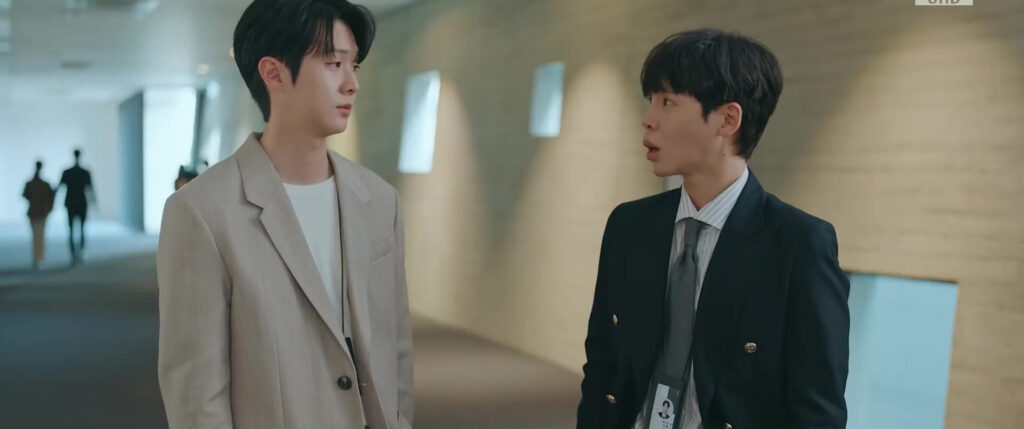
Episodes 1–2 move briskly. The writing balances physical slapstick with quiet moments. The show’s edits (split screens, montage) nod to older K-drama aesthetics. But those choices don’t feel stuck in amber. Instead, they enhance the humor and help establish character quickly. If you like clean, snappy scenes that don’t overstay their welcome, this will feel lean and binge-friendly.
Themes worth noting
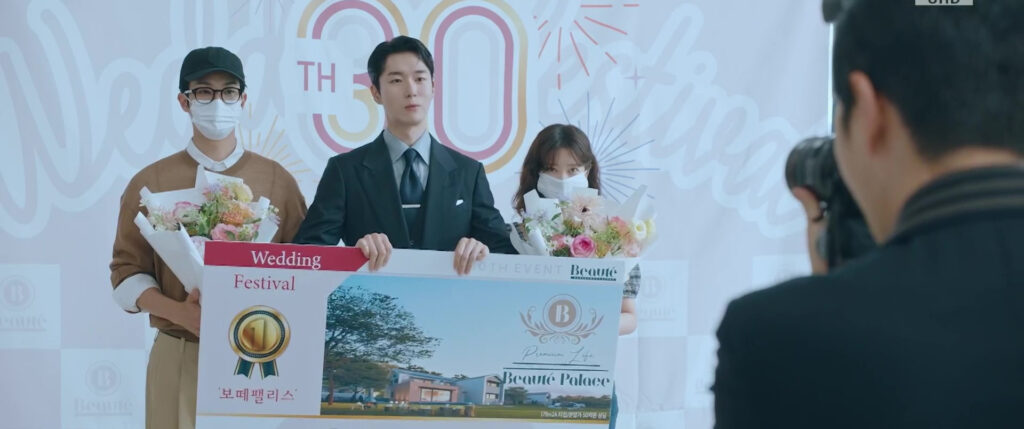
- Agency vs. image: Me-ri fights for control of her life. The contrast with chaebol expectations — where image often replaces effort — is a recurring tension.
- Modern dating disillusionment: The show laughs at how messy real relationships can be and refuses to sugarcoat scumbag behavior.
- Do-overs and second chances: The contract marriage is a fake start that might lead to a real one. Classic rom-com engine. Works when the characters feel earned.
Key moments that stand out
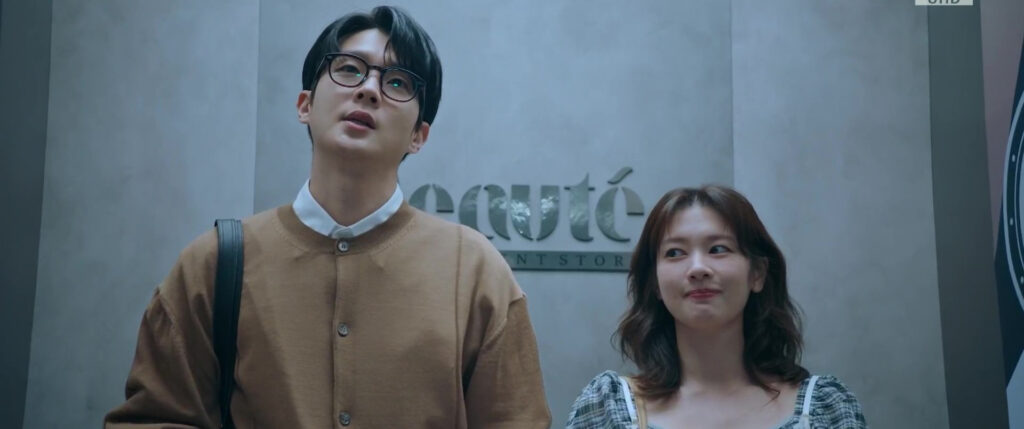
- Me-ri walking out of a predatory pitch meeting. Short, sharp, satisfying.
- The first meet with Woo-joo — a perfect blend of chaos and tenderness. The cactus scene should be meme-ready.
- Me-ri winning (and then getting trapped by) the contest fine print. It’s both hilarious and exasperating — a good dramatisation of “read the contract.”
My take

I liked it more than I expected. The show takes familiar ingredients and adds enough self-awareness to keep them tasty. Jung So-min anchors the series with a lead who actually behaves like a functional adult when it matters. Choi Woo-shik remains a delightable presence; he brings warmth without pretense. The villains are satisfyingly detestable, which is sometimes what a rom-com needs — a clear, hate-able force to rile you up.
If you want hard novelty, this isn’t it. But if you want a warm, entertaining rom-com that knows the rules and plays with them, Would You Marry Me? delivers. It’s not reinventing the wheel. It’s repainting it in pink and putting a tiny flag on top.
A sweet, trope-friendly rom-com that knows how to poke fun at its own clichés while still making them feel fun. Solid leads, good pacing, and enough self-awareness to make the old tropes feel fresh.
Rating: ★★★★☆ (4 out of 5 stars)







